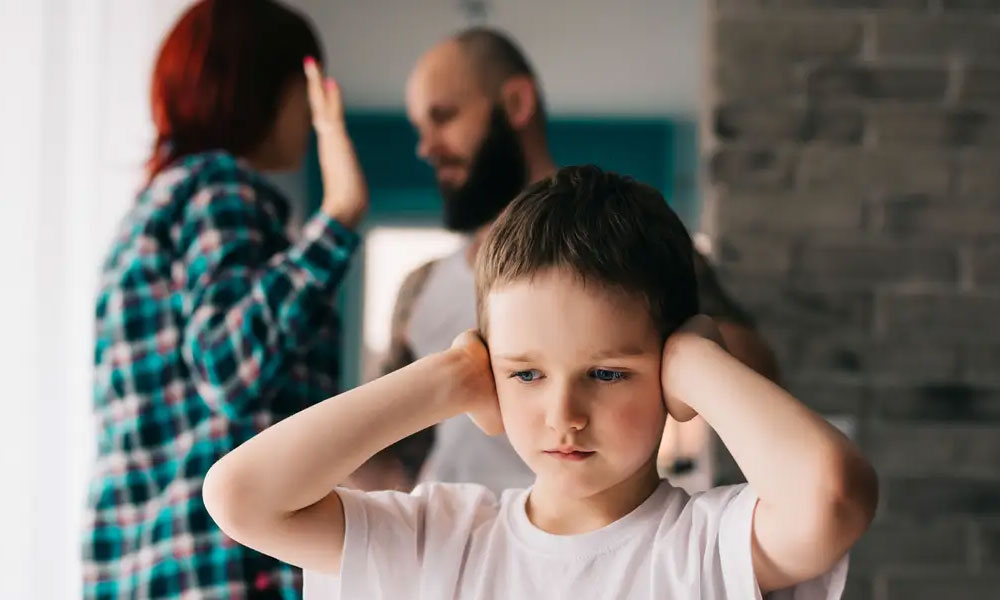8 Adult Behaviors of Someone Who Had Depressed Parents As A Child

Today nearly twenty p.c of the inhabitants meet the standards for some kind of depression. Of course, that doesn’t imply people who find themselves briefly feeling the blues and will likely be higher subsequent week, however depressed people who find themselves having actual problem functioning in life.
“Count every fifth person you see on the street — that’s how many people in your community may be suffering from depression. I think we need to understand the connection between adult depression and children’s behavior.” – Richard O’ Connor, Ph.D.
The quantity of folks affected by depression has reached epic proportions, and the issue solely appears to be getting worse.
Take lengthy work hours. Then combienthat with elevated duty, little time to loosen up, mountains of debt, poor eating regimen, no time to train, plus different stressors. As a outcome, you could have a recipe for catastrophe. Unfortunately, this checklist of stressors applies to most individuals at present, and the tip result’s often underlying detrimental feelings, which may result in depression and different psychological well being issues.
However, depression isn’t just environmental – it’s additionally genetic. This is why youngsters of depressed parents have a a lot greater chance of growing depression themselves. In truth, in accordance with a research that appeared within the December 2011 situation of Pediatrics, 25% of youngsters with two depressed parents had emotional or behavioral issues.
In this text, we’ll talk about typical behaviors of adults who had depressed parents so that you could get the assist you to want in case you endure from depression, or look ahead to the indicators in your family members.
8 Behaviors People Who Had Depressed Parents Display As Adults
Understanding the cycle of depression is the important thing to ending the hurt.
1. Substance abuse
Because of their reoccurring and even fixed depression, adults who had depressed parents typically try to drown their emotions out with medicine or alcohol. According to the Anxiety and Depression Association of America, “about 20 percent of Americans with an anxiety or mood disorder such as depression have an alcohol or other substance use disorder, and about 20 percent of those with an alcohol or substance use disorder also have an anxiety or mood disorder.”
The substances would possibly briefly ease depressive signs, however in the long term, research have proven that medicine and alcohol make the psychological sickness worse.
2. Antisocial habits
Because parents with depression usually tend to disengage from others and spend extra time alone, the kid might begin to mimic this habits as soon as they attain a sure stage of improvement. This can simply carry over into maturity if the kid doesn’t have any grownup influences apart from his/her parents.
According to an article on NCBI, “depression is significantly associated with more hostile, negative parenting, and with more disengaged (withdrawn) parenting.” Because parents might not present the emotional assist the kid wants, the kid himself begins to withdraw as a result of he feels both uncared for or is mimicking the parents’ habits.
3. Trouble sustaining relationships
Depression makes it tough to have regular relationships with others. That’s as a result of the particular person merely doesn’t have the vitality to maintain up with the connection. Also, social anxiousness typically happens comorbidly with depression, which may hinder grownup relationships even additional.
If the parents don’t have many friendships exterior of their marriage, they have an inclination to spend extra time at house. As a outcome, they may smother the kid, which may result in an unhealthy attachment. Furthermore, the kid might show problem making mates, and this could carry over into maturity as nicely.
4. Low shallowness
Adults who had depressed parents often have low self-confidence as a result of they had been by no means taught methods to develop their very own personalities. According to Michelle Sherman, Ph.D., a scientific affiliate professor of psychology on the University of Oklahoma Health Sciences Center in Oklahoma City, youngsters of depressed parents would possibly even blame themselves for his or her parents’ depression. This, together with detrimental parenting, can result in low shallowness and hassle sustaining a way of self.
5. Underachievement
Healthy parents usually assist a toddler’s endeavors and encourage them to go after their objectives. However, a disengaged father or mother with depression may not have the flexibility to be there for his or her youngsters emotionally.
Indeed, this father or mother can hinder a toddler’s efficiency. Because the kid doesn’t have the parents cheering them on, they could not carry out to one of the best of their means. Consequently, that may result in issues at school and the workplace afterward.
6. Loss of curiosity in life
People with depression are likely to lose curiosity in issues they as soon as discovered fulfilling, and if parents show these behaviors, youngsters might start to withdraw as nicely. This can result in a distorted sense of self, because the little one doesn’t study what h/she likes or dislikes, or might not have the boldness or willpower to check out and follow new actions.
7. Difficulty concentrating
According to an article on NCBI,
“Trouble concentrating and making decisions, as well as other symptoms, may emerge as early signs of depression in the children and have the strong potential to interfere with intellectual and academic functioning, while associated school failures may independently increase the risk of depression.”
Children who’ve problem concentrating at school who don’t get therapy for depression have a better chance of displaying these signs as adults. This habits, as soon as once more, may be attributed to disengaged parenting.
8. Feelings of overwhelm
Not surprisingly, adults who had depressed parents might not study efficient coping abilities for stress. Thus, they could develop different psychological problems, similar to anxiousness. The grownup might really feel that she or he is insufficient for coping with on a regular basis life. Therefore, she or he might begin to withdraw from many actions because of this.












